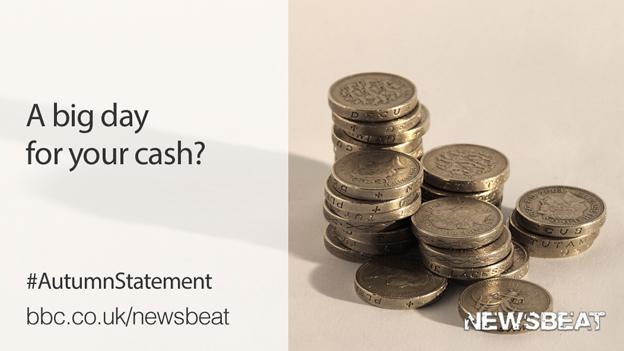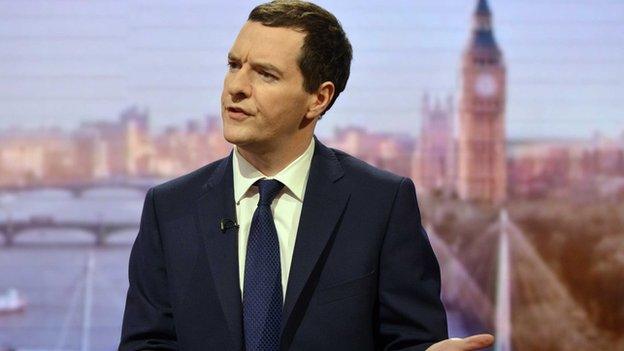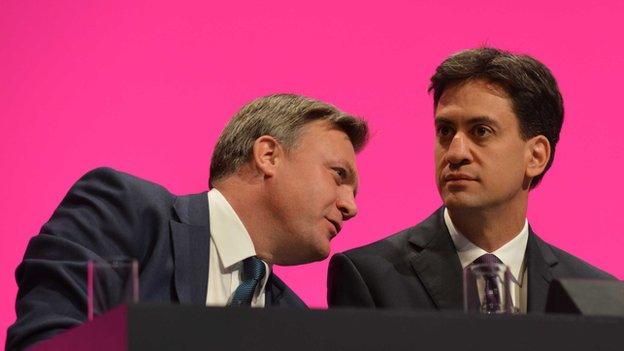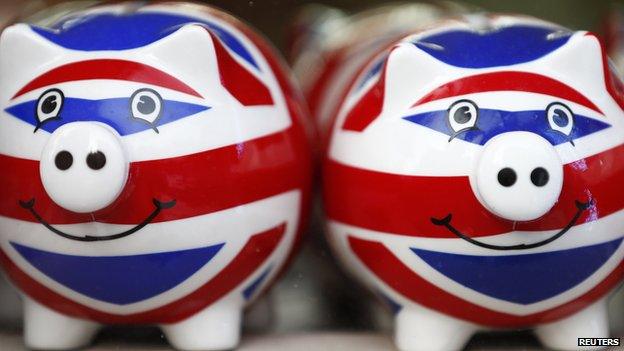Autumn Statement: What you need to know
- Published

After the Budget, the Autumn Statement is the second most important date in the year to get an update on the state of the UK economy.
Chancellor George Osborne got on his feet in the House of Commons to reveal where he wants to spend money and any taxes he wants to change.
But if you're hoping to hear lots of positive news after years of pain for the economy, think again.
It's all down to the deficit - the word that has dominated politics for years.
The deficit is the gap between what the government spends and what it earns in taxes. The higher the deficit, the more the UK has to borrow and the more it has to pay back in debt.

What's the problem with the deficit?
There's no escaping the fact the UK deficit figures are bad.
When the coalition government took power in 2010 the deficit was £134bn. The Conservatives and the Liberal Democrats had hoped to wipe that figure out in time for the general election next year but they quickly realised it wasn't going to happen.
With just months to go before the vote next May, the UK deficit is predicted to be just under £90bn.
That means the country faces at least another five years ahead of massive spending cuts to get that number down.
Why is it still so big?
If you look at the list of the things needed for a healthy economy then this government has managed to tick lots of boxes.
Unemployment is falling faster than most people were expecting and the economy is growing.
The big problem is wages.
Plenty of new jobs have been created but many of them don't pay that well and that means the government isn't making as much money from our taxes as it had hoped.
A slowdown in the number of people buying new homes is also responsible because fewer people paying stamp duty means less money for the chancellor to play with.

Shadow Chancellor Ed Balls and Labour Leader Ed Miliband
What should we expect then?
The deficit figures may not make happy reading for government ministers but will they try and use this to their advantage?
The message from the Conservatives is likely to be one they'll be repeating right up to polling day next May: "The economy is still very fragile, don't let Labour wreck it again."
The Liberal Democrats will want the public to know that they've played a big part in the coalition and the Tories shouldn't take all the credit.
Labour's shadow chancellor Ed Balls will get his chance to respond to the statement. Expect him to say the recovery from the recession has been too slow and led to too many people in low-paid jobs.

Any surprises?
Well there is an election coming so the last thing the government wants is for this Autumn Statement to leave voters feeling miserable.
George Osborne will talk about more spending on the NHS and he may announce money to build new roads.
But the bottom line is this: these giveaways cost the country money and there isn't much money to give away.
Follow @BBCNewsbeat, external on Twitter and Radio1Newsbeat, external on YouTube